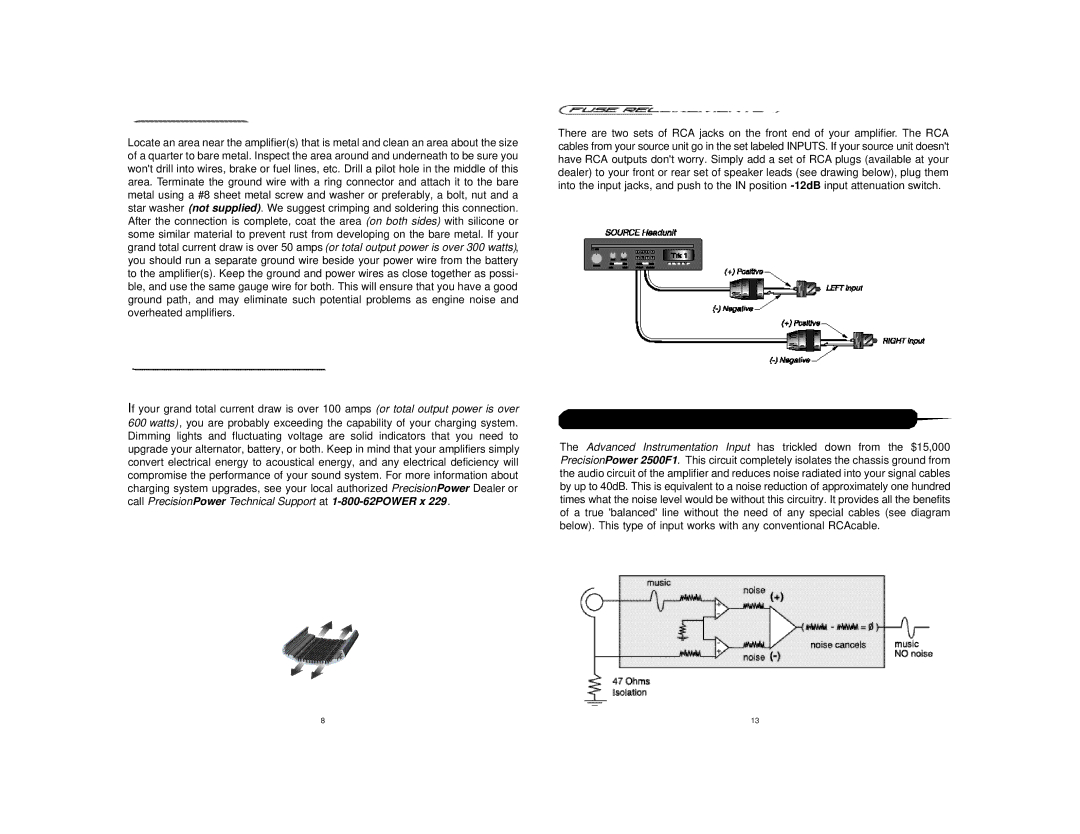PCX1250 specifications
The Precision Power PCX1250 is an impressive monoblock amplifier designed for both car audio enthusiasts and professional sound installers. With its robust construction and state-of-the-art technology, it stands out in the competitive world of automotive audio equipment.At the core of the PCX1250 is its powerful 1250-watt maximum output, providing ample power to drive even the most demanding subwoofers. The amplifier's class D topology ensures high efficiency, minimizing heat generation while maximizing audio performance. This means that users can enjoy loud, clear sound without worrying about overheating during extended use.
One of the standout features of the PCX1250 is its variable low-pass filter, which allows users to customize the sound to their preference. This filter plays a critical role in enhancing the bass response and ensuring that the subwoofer produces clean, undistorted low frequencies. The low-pass filter can be adjusted between 40Hz and 200Hz, giving users the flexibility to dial in the perfect setting for their specific system.
Convenience is another hallmark of the PCX1250. The amplifier is equipped with adjustable gain control, which lets users set the input sensitivity to match the output of their head unit or other source. This helps to prevent distortion and ensures that the audio maintains its clarity, even at higher volume levels.
Additionally, the PCX1250 features a built-in thermal protection circuit and a short-circuit protection system, which safeguard the amplifier from damage under adverse conditions. The power and ground terminals are designed for easy installation, with substantial gauge inputs that can handle high current levels without compromising performance.
In terms of design, the PCX1250 boasts a sleek and modern aesthetic, featuring a durable aluminum casing and stylish accents. Its compact size allows for flexible installation options, fitting comfortably in various vehicle layouts without sacrificing performance.
Overall, the Precision Power PCX1250 is an exemplary amplifier that combines power, performance, and versatility. With its robust features and cutting-edge technology, it is an excellent choice for anyone looking to elevate their car audio experience. Whether driving a single subwoofer or a full sound system, this amplifier delivers impressive sound quality, making it a top pick among audio aficionados.

